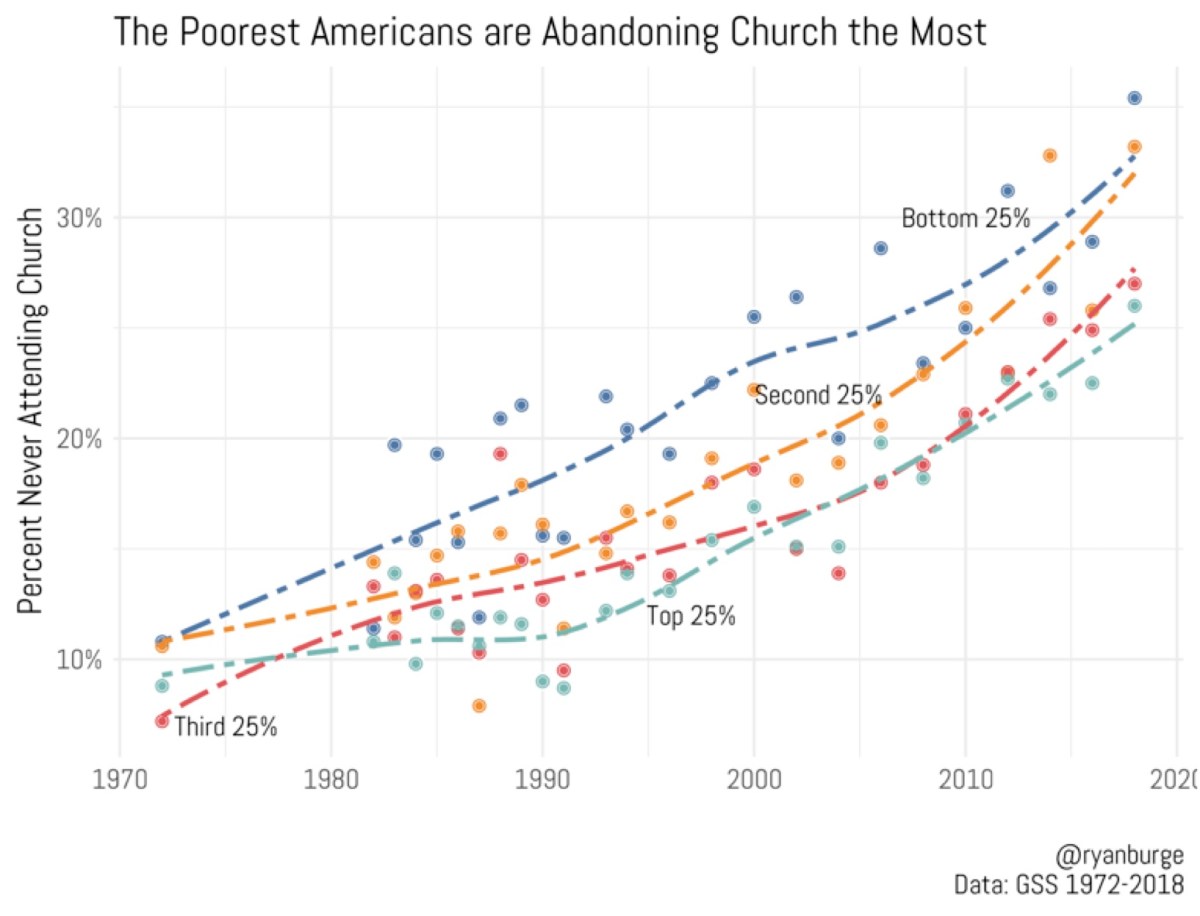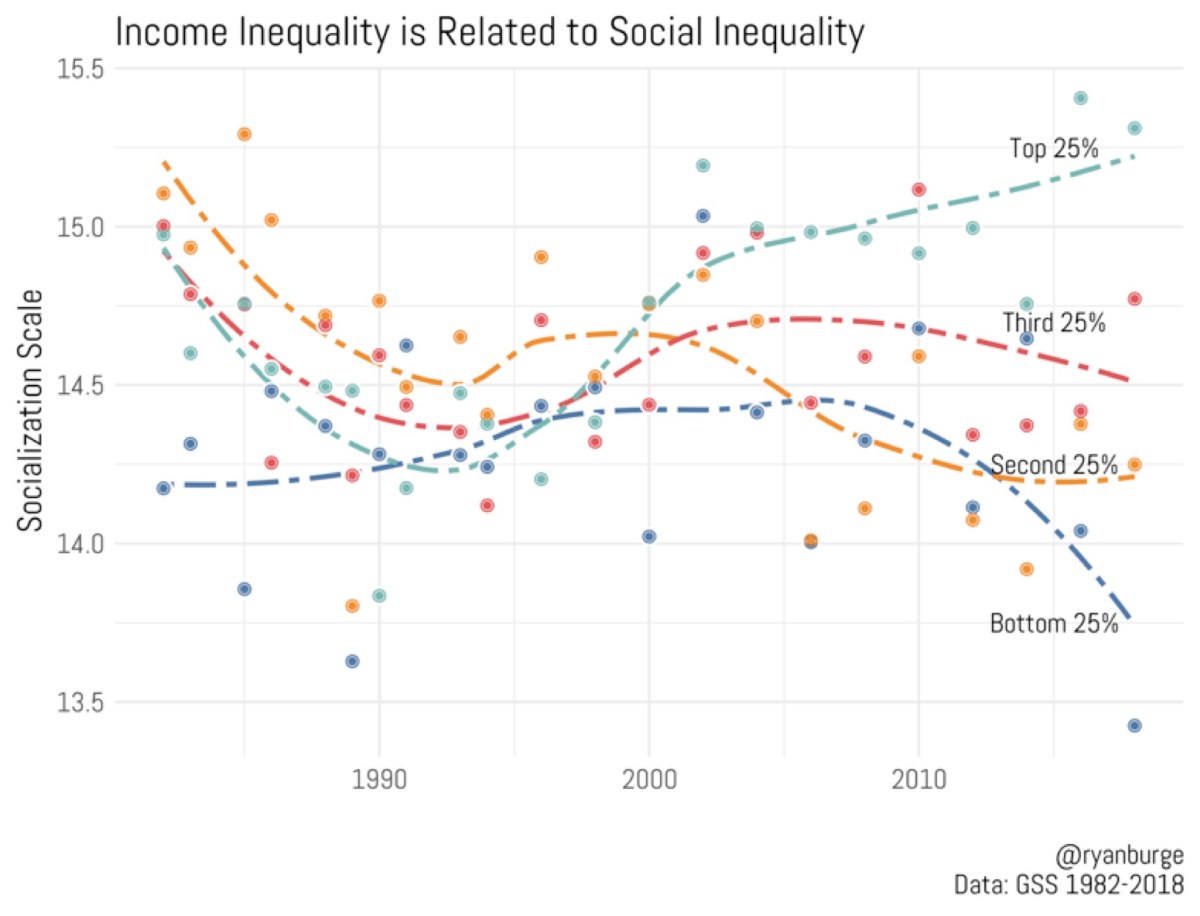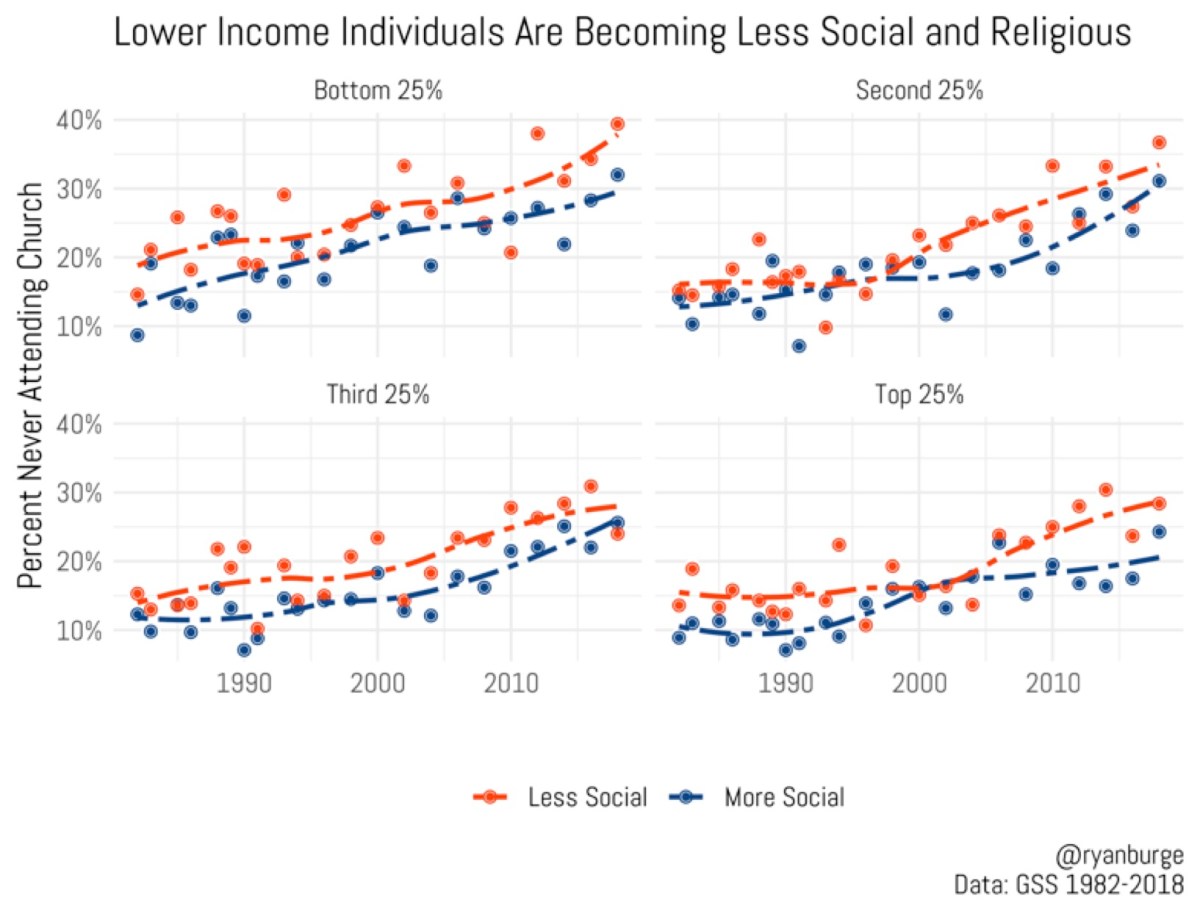It’s well-established that the gap between the middle class and those who earn the highest incomes in the United States has grown wider over time, spurring partisan responses over how or whether to address income inequality.
But there’s a facet of this issue that should be particularly worrisome to Christians: Many of the poorest Americans are abandoning church en masse. By stepping away from church communities, the people who are most financially strapped also end up losing out on social networks and social capital—which can make their economic situation and outlook even worse.
To test the relationship between religion and socioeconomic status, I took four income brackets (adjusted for inflation over the time) from the General Social Survey (GSS) and calculated the share that said they never attended religious services. The change over the last 46 years was stunning.
In the 1970s, the difference in church attendance among the four income groups was relatively small (about 5%). That gap has widened significantly over the last four decades, with a noticeable spike in recent years. In 2018, a quarter of the wealthiest Americans reported never attending services, while the share of those in the bottom bracket who never darkened a church door was over 35 percent. In essence, the inequality gap in attendance has now doubled.

The growing social gap between the rich and poor extends beyond church attendance, as Americans in the lowest income bracket report being increasingly isolated from their own communities overall.
Based on four GSS questions about socializing with friends, family, and neighbors over the last year—grouped together as measure of social activity—there were no significant differences among the various income levels as late as the mid-1990s. But since that point, even social activity has become divided between the haves and have-nots.
Those at the top of the income ladder have become even more social since 2000, while those at the bottom are rapidly becoming more isolated. While the gap between the top and the bottom was essentially zero in 1996, it’s reached 1.5 points.

By and large, people who have less active social lives are more likely to never attend a worship service, although the rates of change are noteworthy.
Consider this: 40 percent of individuals who are in the bottom quartile of the income spectrum and engage in few social activities never attend church. That’s twice the rate of someone in the top income bracket who has an active social life.

From an evangelical perspective, these trends suggest it may be getting more difficult for churchgoers to befriend those from the lowest socioeconomic class and bring them into their church communities. Despite Jesus’s message to “proclaim good news to the poor,” the poor increasingly find themselves apart from the Christians preaching the hope of the Beatitudes.
It’s also incredibly troublesome from a social science perspective. In addition to offering spiritual teachings and guidance, churches are ideal places to gain civic skills. Oftentimes people will be asked to organize an event, lead a small group, help develop a budget, or put together a rally. Churches broaden social networks, teach skills, and encourage community involvement—which can be highly valuable in the world of work.
I once attended a church where the Sunday service included a time for “prayers of the people.” One Sunday, a young father stood up and said that he had just lost his job and wasn’t sure how he was going to be able to support his family. The congregation prayed for him. Then, after the service, a businessman approached him, said that he needed someone to help him around the shop, and offered him a job on the spot. The Lord works in mysterious ways—and sometimes directly through social networks.
If people don’t attend church, they lose out on these opportunities, which can be a disprotionate blow to the low-income families who could benefit from such connections. The GSS trends around the income gap and church attendance gap indicate that the invisible bonds that hold our communities together—our “social capital”—is fraying.
In recent decades, the move away from church attendance has corresponded with greater social isolation overall for Americans in the lowest income bracket; they have not replaced their church fellowship with other networks serving the same function.
It’s impossible to know if poor Americans left the church because they didn’t feel welcome or if they left because they don’t have the time or energy to attend. Either way, the income inequality that is ravaging the American economy is also taking a toll on our communities. Churches used to be a way to bridge this divide, but even there, the gap between haves and the have nots is growing larger.
Ryan P. Burge is an instructor of political science at Eastern Illinois University. His research appears on the site Religion in Public, and he tweets at @ryanburge.












